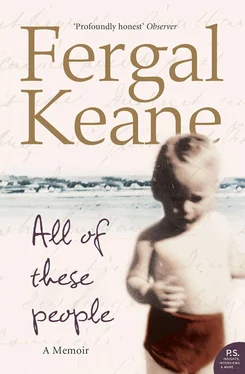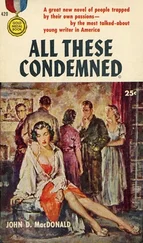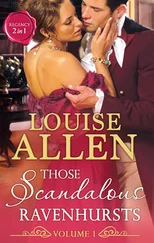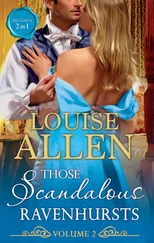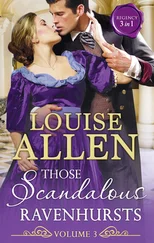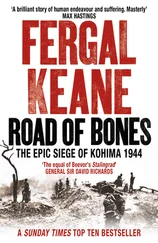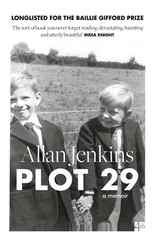I have been well rewarded for my travels. My reporting of war has won plaudits, awards, public attention. Yet I found the longer I stayed on the road the more I became aware of the psychological backwash of war. This, of course, touched the participants and victims most of all, but for the professional witnesses there was also a high price to be paid, not mitigated by the fact that we had chosen to put ourselves in the line of fire.
For me the greatest consequence of life at war, particularly after the Rwandan genocide of 1994, was a feeling of guilt. The cataclysm which engulfed the Great Lakes region of Africa in the late spring of 1994 left many of the witnesses with lasting feelings of responsibility, or in some cases a rumbling but impotent rage. Sometimes you could experience all those feelings within seconds of each other. We had watched the unimaginable – the slaughter of nearly a million people in one hundred days – and we had survived. All of my friends who covered Rwanda came away with something more than memories: we were, in different ways and with varying degrees of intensity, haunted. In my case the story followed me for a decade. It follows me still. Rwanda led me into two extraordinary relationships: one an encounter of love, the other a confrontation with a man whom I felt myself loathing and fearing, and who in the end I would have to face in a courtroom in the middle of Africa.
While writing this book I have been surprised by the number of times I laughed at the recollection of this or that event and how inspired I have felt at the memory of certain individuals. Even in the worst of situations there have been kind gestures, compassionate acts; often these kindnesses have come from those who have been most abused, people who insisted, when we met, on recognising our shared humanity.
The title of this book, All of These People, comes from a poem by the Ulster writer, Michael Longley, one of the most sensitive chroniclers of the pain caused by the Troubles. It is his tribute to those who have inspired him; I carry a little photocopy of this poem wherever I travel in the world.
All of these people, alive or dead, are civilised.
The civilised are those who can love, forgive and hope. The world is full of them. My mother was one such person. My father too.
In this account there are individuals whom I have left out, either because they would not wish to be included, or because doing so might put them in the way of harm. In describing the relationship with my father, I am conscious that it is only my version of events, my direct conversation with somebody who is long gone but whose presence remains a constant in my life. Others will see him differently and remember different things about him.
I hope that anyone reading this book will come away from it with a sense of optimism. I am an optimist. I believe there is more good in humanity than evil, and that we are capable of changing for the better. This is the continuing lesson of my personal life as much as the public sphere in which I have operated. I make my claim on the entirely unscientific basis of one man’s lived experience: it is the view from the long journey, not blind to the madness but awake to our finer possibilities.
Ideal and beloved voices Of those who are dead, or of those who are lost to us like dead.
Sometimes they speak to us in our dreams; sometimes in thought the mind hears them.
And for a moment with their echo other echoes return from the first poetry of our lives – the music that extinguishes far-off night.
‘Voices’, C. P. CAVAFY
Here is a memory. It is winter, I think, some time in my seventh or eighth year. There is a fire burning in the grate. Bright orange flames are leaping up the chimney. The noise hisses, crackles. On the mantelpiece is a photograph of Roger Casement gazing at us with dark, sad eyes. My father loved Casement. An Irish protestant who gave his life for Ireland. In this memory my father sits in one chair; my mother is opposite him. They are rehearsing a play, Rosencrantz and Guildenstern Are Dead by a man called Tom Stoppard. It will open at the Gate Theatre in Dublin in a few weeks’ time. I hear my parents’ voices going back and forth. My father’s voice is rich, deep. It rolls around the room, fills me up with wonder. My mother’s is softer, but so intense, the way she picks up when he stops. Never before have I seen such concentration, such fidelity to a moment. I don’t really understand this play. Two men are sent to kill another man. It’s about Hamlet, my mother explains. The two men are in the Shakespeare play. But who is Hamlet? It doesn’t matter. I am enchanted. I feel like part of some secret cell. I don’t want them to stop. I want this to last forever. Us being together in this calm; the words going on, softly, endlessly. Years and years later I try to find his voice, her voice, as they were on that night, when there was calm. If I will it hard enough I can hear them. My parents, the sinew and spirit of me.
My mother is pretty. She smells of Imperial Leather. Her hair is brown – long, and she asks me to comb it. Six pence for ten minutes. Half a crown for twenty. My father is darker and in the sun his skin tans quickly. Like a Spaniard. He says the Keanes are descended from Spanish sailors who were wrecked off the west coast of Ireland during the Spanish Armada. Such pictures he paints of our imagined beginnings along the rocky coast of Galicia, the great crossing of Biscay, the galleons smashed on the black rocks of Clare, the soldiers weighed down by their armour, sucked down into the cold. ‘Only the toughest survived,’he says.
His eyes are green like mine: ‘Like the heather,’ he says. When he poses for a publicity photograph for one of his productions my father looks like a romantic poet, a man who would sacrifice everything for his art. He wore a green tweed jacket; I remember the scratch of it when he embraced me. And the smell of John Players cigarettes, the ones in the little green boxes with the sailor’s head on the front, and I remember how the smoke would curl above his head. Sometimes in the mornings I would see him stooped over the bathroom sink in his vest, peering into a small mirror as he shaved. Afterwards he would have little strips of paper garlanded across his face to cover the tiny razor cuts. He used to tell a joke about that:
A rural parish priest goes into the barber’s and asks for a shave. The barber is fond of the drink and crippled with a hangover. His hands are shaking. Soon the priest’s face is covered in tiny little cuts.
Exasperated, he says to the barber: ‘The drink is an awful thing, Michael!’
The barber takes a second before replying.
‘You’re right about that, Father. ‘Tis awful. Sure the drink, Father…it makes the skin awful soft.’
I have a cottage by the sea on the south-east coast of Ireland. Every year I go there in August, the same month that I have been going there for over forty years. I am well aware that my addiction to this place is a form of shadow chasing. It was here, on the most restful of Irish coasts, that I enjoyed my happiest hours of childhood. What else are you doing, going back again and again, but foraging for the ghosts of lost summers?
Last August I went to a party at the house of a friend overlooking Ardmore Bay. We had sun that day and the horizon was clear for miles. In Ireland when I meet older people, they will frequently ask one of two questions: ‘Are you anything to John B. Keane?’ or ‘Are you Éamonn Keane’s son?’ Yes, a nephew. Yes, a son. My father and his brother were famous and well-loved figures in Ireland. Éamonn, the actor, and John B, the playwright. Although they are both dead, they are still revered. In Cork city people will usually ask if I am Maura Hassett’s boy: ‘Yes I am, her eldest.’ They will say they remember her, perhaps at university or acting in a play at one of the local theatres. ‘She was marvellous in that play about Rimbaud and Verlaine.’
Читать дальше
